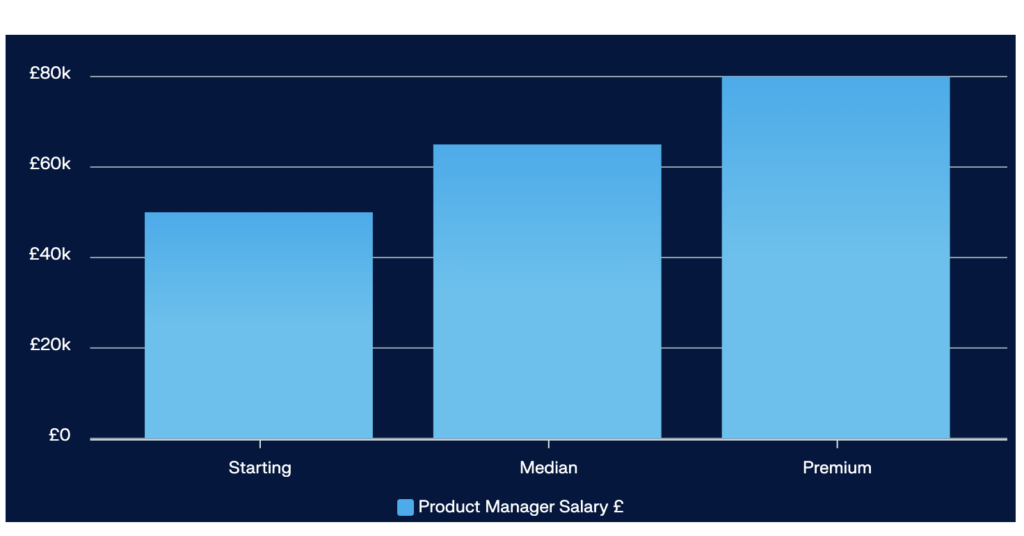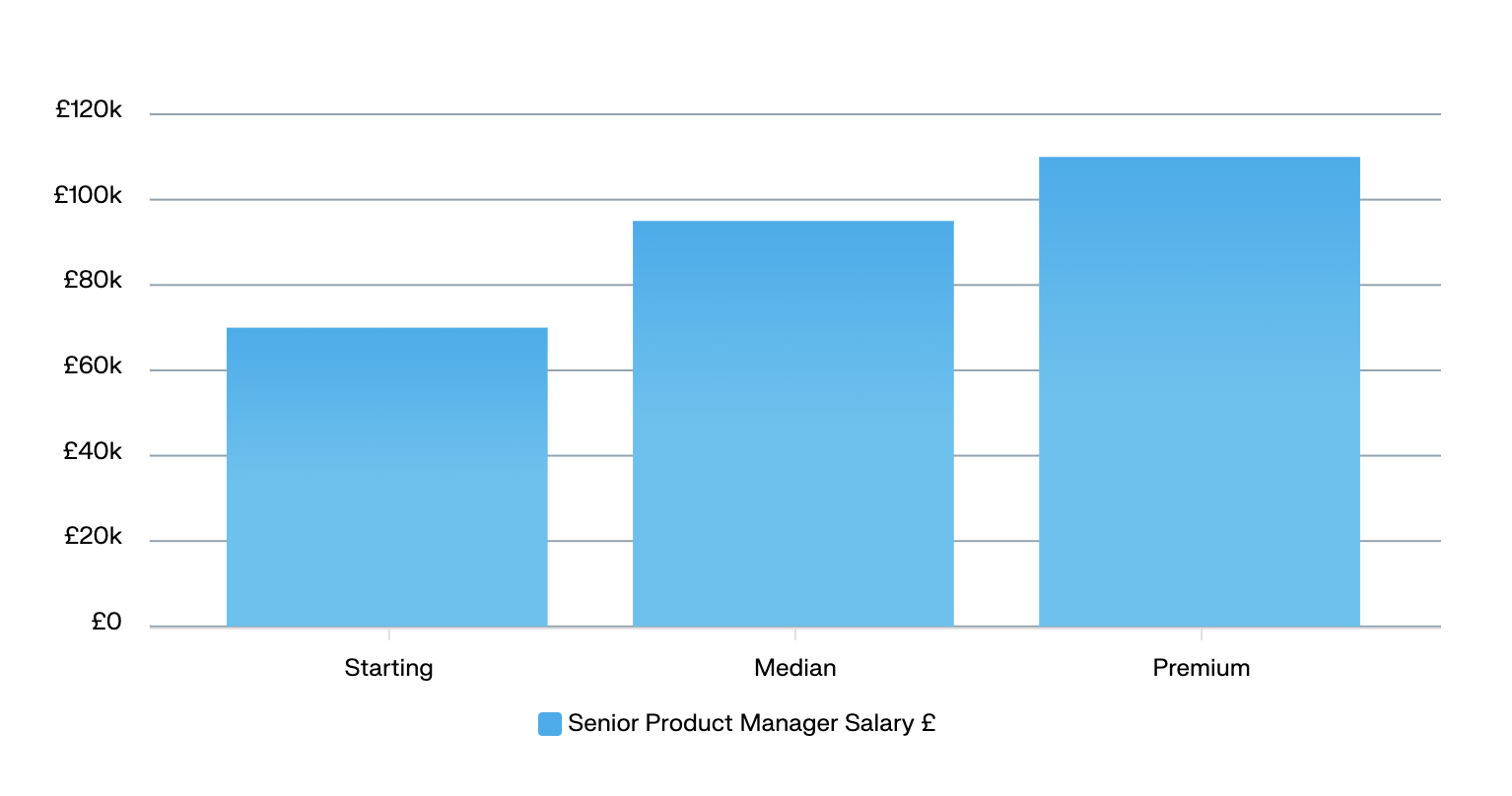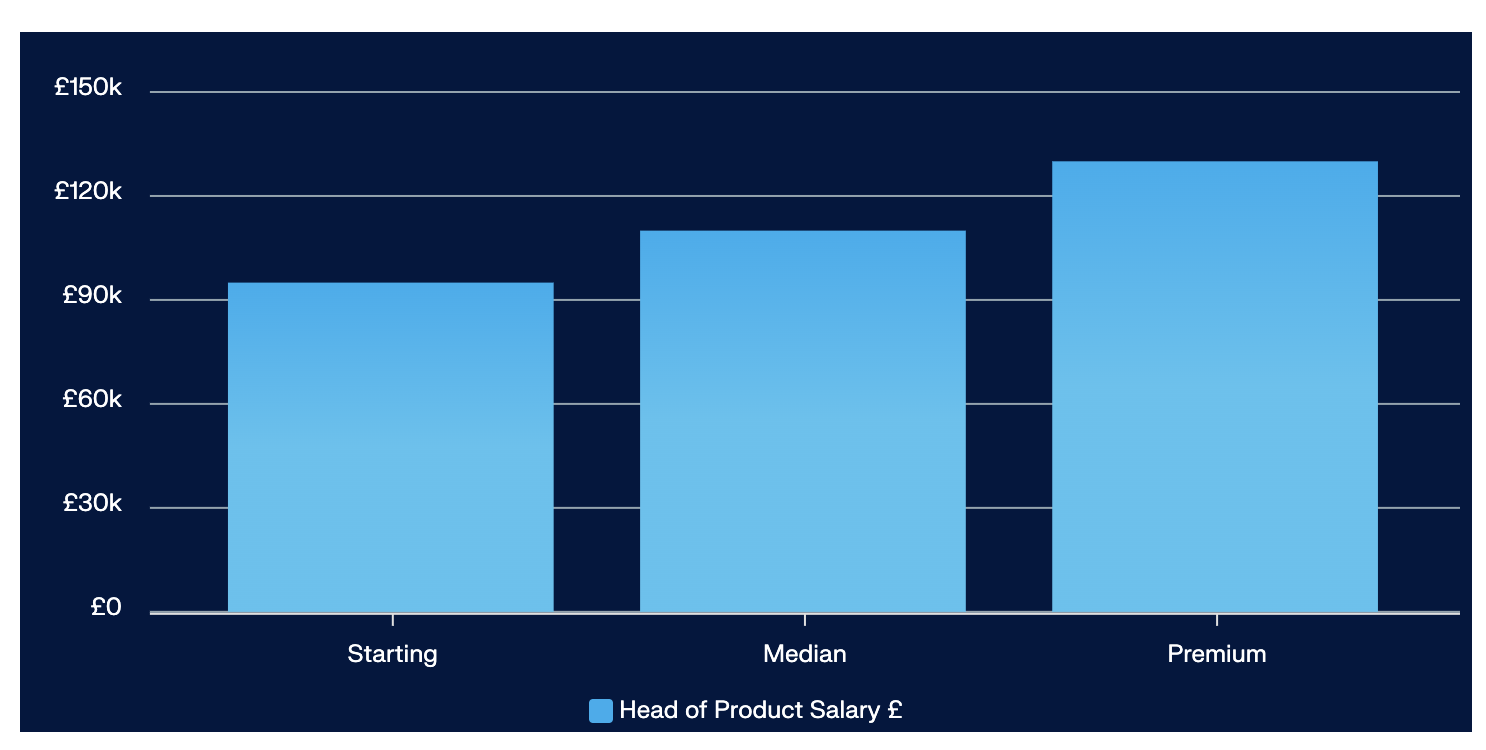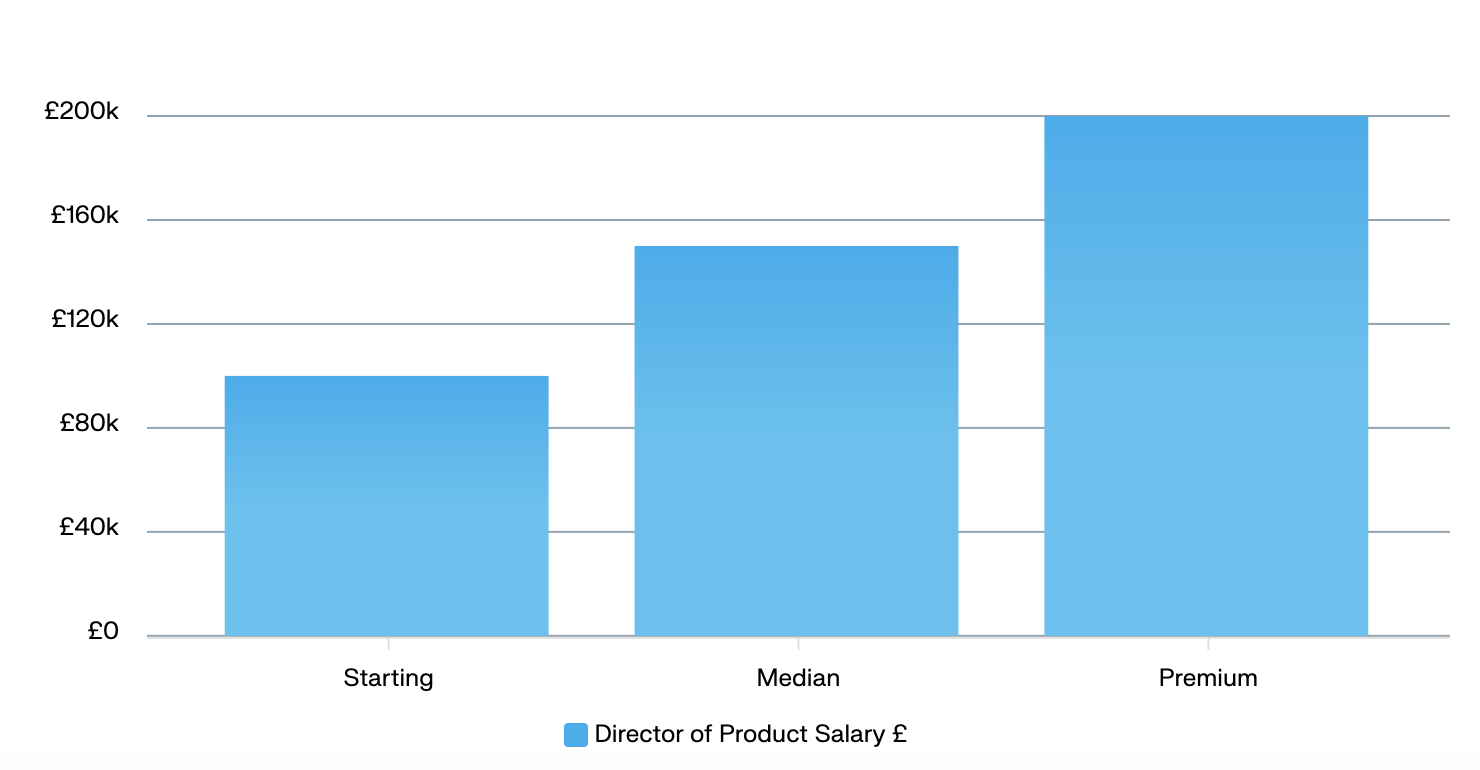2024 has been a pretty bumpy year for product managers looking for a job. We’ve seen a few rounds of layoffs and hiring freezes, and fewer vacancies as companies try to do more with less or failing to secure the funding they need to grow. We’re seeing lots more product people – at all levels – looking for jobs.
Conversely, talent management and HR professionals are struggling to cope with the volume of job applications they receive, even in – or perhaps because of – a world where applicant tracking systems and online applications are the norm. Whether they're looking for a job or trying to fill a vacancy, it’s been a tough year for everyone in product recruitment.
Let’s talk money
Let’s drill down a bit. Salaries, perhaps surprisingly, haven’t really changed, and product management continues to be a well-paid and financially attractive job. But there are variations in what you can expect to be paid depending on where you are in the world. Taking some simple top-line numbers as a guide,
- In the US, according to Glassdoor, the average salary for a product manager is $137,000.
- In the UK, it’s £60,800, according to Glassdoor, and there’s some variation on this number elsewhere in Europe.
- For example, Glassdoor says the average salary for a product manager in Switzerland is about £94,000, and in Germany it’s about £58,000.
- Salaries are higher in tech heavy areas like Silicon Valley and big tech businesses tend to pay well over the average. Glassdoor estimates senior product managers in Silicon Valley can expect to earn up to about $250,000 a year and a director or VP of product will often earn over $300,000 in top tech markets.
- Product managers in India are paid an average of £36,000.
- Product management recruitment specialist Intelligent People publishes a periodic guide to salaries at different levels of seniority and showing starting, median and top expectations at each level. The latest 2024 guide is here.
Product Manager: Average salary £65,000

Image credit: Intelligent People
Senior Product Manager: Average salary £95,000

Image credit: Intelligent People
Head of Product: Average salary £110,000

Image credit: Intelligent People
Chris Mason, CEO of Intelligent People, comments that while there’s not much movement or pressure on compensation levels for mid-range jobs, candidates for the most senior roles are prepared to be flexible. “We definitely see candidates flexing on a package to get an opportunity that they feel is right for them,” he says. “They might be on £180K, with a big bonus and equity, and we're seeing them flex down to £130K-£140K. That’s quite a big drop.”
Director of Product and VP of Product: Average salary £150,000

Image credit: Intelligent People
Some sectors and regions are better than others
Compensation also varies depending on the industry you work in. The tech and finance industries have always typically offered higher levels of compensation than other industries. According to a recent post from Aha.io, the top-paying industries for product managers after financial services and tech are agriculture, pharma and biotech, and energy, mining and utilities.
In one of his weekly newsletters, Lenny Rachitsky analysed the state of the product job market in 2024 – he finds there’s a shift to hiring more senior product people and that the opportunities for remote jobs are shrinking fast. He also notes that more than one in five open product roles is based in the San Francisco region, with Bengaluru in India the most popular location outside the US.
Product management recruiters readily admit that it’s been a difficult year, with the first half tougher than the second. Says Nick Charalambous, CEO of Few&Far: “It’s been difficult, though better than it was in 2023. But there are definitely some highs – it’s become a lot busier since September, which is great.” Nick attributes this uptick to more clarity and confidence after the UK and US elections and the hope that there be less regulation and more investment in the US economy. He also points to more activity from venture capitalists in the second half of 2024 – for example in August Balderton announced $1.3 billion in new funds. Nick thinks there are other slight suggestions of bright spots to come. For example, he sees some US companies looking at the UK as a potential tech hub because it has a high level of talent and relatively low salaries.
Are any sectors likely to be busier than others? As ever much of the available funding is going into fintech, says Nick. “Biotech is growing quickly too, there’s a lot of biotech investment in data science, AI, data engineering, but much of that money is going to the US.” He adds: “And it's quite hard for product people working on consumer-based products or SaaS products to make the transition to biotech.” Chris Mason adds that the hospitality and travel sectors are busier than you might imagine. “It seems that people will pay crazy money for tickets to live gigs,” he says, “and they’re prioritising holidays and travel.”
Looking forward
What about the future? It’s a politically and economically fragile world, and with so much of the growth in tech predicated on funding, it’s nigh-on impossible to make confident predictions about what will happen in the product job market even in the short term. Product coach James Gunaca comments: “The world is so volatile at the moment. When people get burned like they have been it takes a while for confidence to come back. We need a period of stability before people feel they can start investing again.”
The large volume of applicants chasing too few jobs – coupled with low barriers to applying – isn’t going to change any time soon. Nick Charalambous says that Few&Far recently advertised a job on LinkedIn at 4pm on a Friday. They had received over 160 applications by 6pm, and by the time they started reviewing applications over the weekend – because they wanted to get control before the volume got out of hand – there were nearly 400 applications. A few years ago this number would have been more like 60 or 70, he says.
In such an environment, employers can be and are hyper-selective. Freelance product manager and researcher Zareef Anam says that employers are also trying very hard to hedge their risk. You might be a well-qualified candidate, but any negative signals – perhaps you’ve not built the exact instance of a product they are trying to solve for or can’t demonstrate the exact skill set they’re looking for – will count against you.
Getting a job
How do you get yourself noticed and find a job? There’s lots of advice already available on this on Mind the Product and elsewhere. James, who has written a couple of analyses for Mind the Product on why the product management job market is broken, Everything wrong with the product management job market. And how to fix it, says that resilience is the most important skill for candidates to possess moving forward. He also recommends reading Never search alone by Phyl Terry as it provides some good advice on leaning on and leveraging your network.
Chris Mason says you should “optimise everything”. “Hunt down people you've worked with, try and uncover opportunities there and get recommended, because internal recommendations and referrals really give you an edge.” People are often incentivised to recommend candidates, he says, and such applicants are often preferred to cold applications.
Tailor your resume
Chris has also written an advice post on how to code your CV to get past AI / automated CV review tech. He says that you should mirror the language in the job description in your CV, because the junior person or AI bot who does the first screen of applicants will look for this. “If you’ve genuinely got the experience, make sure you mirror their language. If they're looking for zero to one or finding product market fit, make sure you say you've done it and give an example.” Impact statements are also vital to get noticed, he says, “whatever it is, has it generated commercial value, driven sales, acquired more customers, reduced churn, increased lifetime value, increased conversion rates? And give a number”.
Chris advises not to call or message to see if your application is progressing. While you might suppose it’s an action to help you to stand out from the crowd, talent management and HR are generally so overwhelmed it can just as easily count against you, he says.
Nick Charalambous finds that commercial acumen is increasingly an expectation. He says: “The product people getting jobs can show their commercial acumen and commercial experience. It’s the feature factory product managers who really struggle.” He says you need to show that you understand how the product you’re creating leads to revenue and profitability.
He also advises job hunters to keep their longer-term ambitions in mind. He thinks people often avoid doing this, especially when they’re looking for work, and says that in product management there are effectively three career paths -you're working towards being an individual contributor in a corporate environment, a manager in a corporate environment, or an entrepreneur. He’s written a guide that examines the pros and cons and experience you need to set yourself up for each path. He says: "If you think about the lifestyle that you want, you can then think about what jobs or what route will allow you to get it. It's a lot easier to then think about the steps you need to take.”
2024 has certainly been a tough job market for product managers. And while it will stay tough out there for job-hunting product managers at all levels, James Gunaca provides a reminder to stay positive: “There continues to be a wealth of opportunity and a wealth of change that's ahead of us, and there will continue to be a growing number of new problems that are interesting to solve. So if you really love solving problems for customers and helping to grow businesses, you're not going to run out of things to do.”







